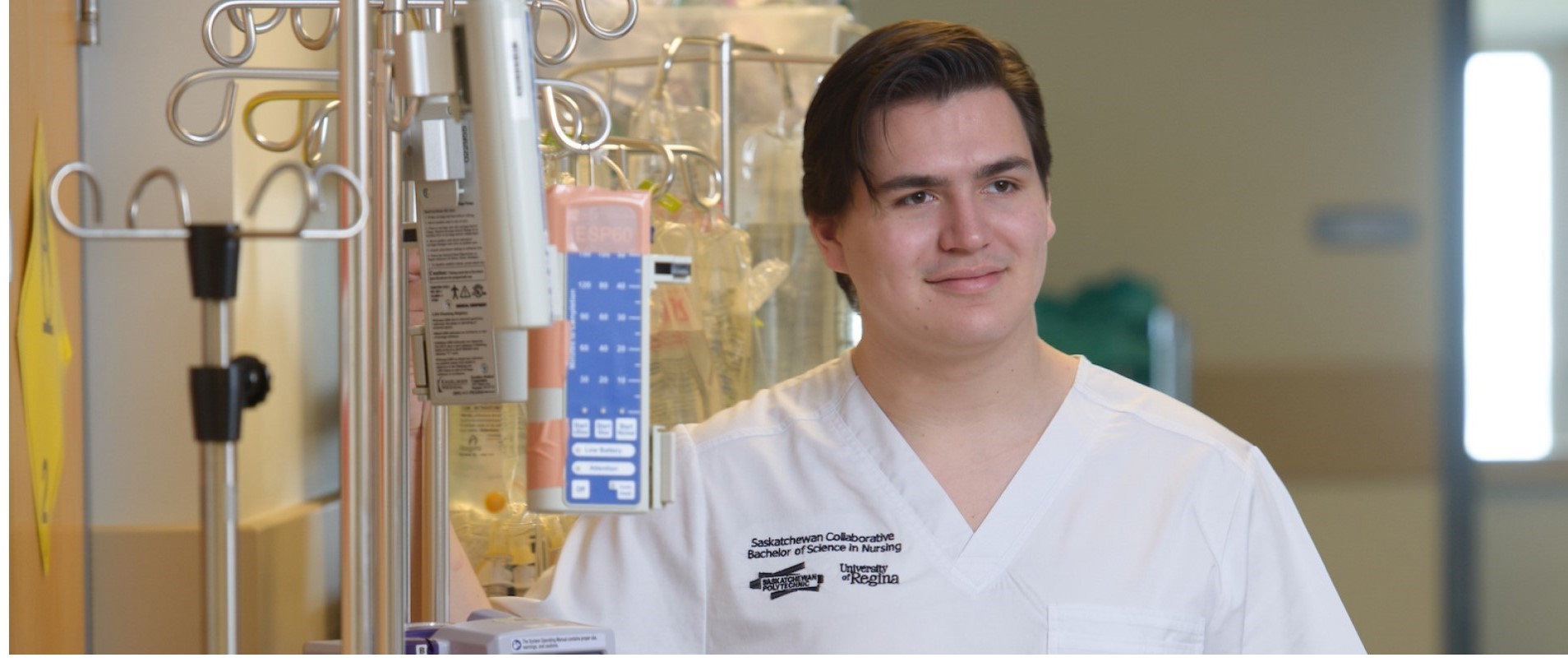Other Program Information
English Language Proficiency (ELP) Requirements
The language of instruction at the University of Regina is English. All applicants to the University of Regina must therefore demonstrate an appropriate level of proficiency in the English language. Any one of the following will be accepted as satisfactory evidence:
- Successful completion of at least three years of formal, full-time English at a secondary school that is a recognized school or institution where English is primary language of instruction.
- Successful completion of the English as a Second Language (Advanced EAP) program or a minimum average score of 55 on the ESL placement exam both offered through the Centre for Continuing Education at the University of Regina. For further information, please contact English as a Second Language Office, Room 114, South Residence, University of Regina, Regina, SK, S4S 0A2, Tel: (306) 585-4585 or esl@uregina.ca.
- Successful completion of at least 24 credit hours (University of Regina degree level equivalent) in an approved English-language post-secondary institution, including at least 6 credit hours in humanities or social science subjects and with a minimum grade point average of 60.00% or equivalent is considered an acceptable demonstration of proficiency in English. Post-secondary institutions that meet this requirement must be verified by the University of Regina using industry-recognized higher education resources.
For the Faculty of Nursing, post-secondary studies from a country where education at the post-secondary or secondary level is not commonly delivered in English, those studies must have been completed within two (2) years of application to the Faculty in order to meet English Language proficiency. For a list of the ELP requirements by country, go HERE. - Advanced Placement English (grade of 3 or better) or International Baccalaureate Higher English (grade of 4 or better) or SAT II English (required score varies).
- GCSE/IGCSE/GCE O’ Level English, English Language, or English as a Second Language with minimum grade of ‘B’ or GCE A/AS/AICE Level English or English Language with minimum grade of ‘C’.
- Completion of the IELTS (Academic) exam with the following minimum scores in each category:
- Overall score of 7.0
- Speaking 7.0
- Writing 6.5
- Listening 7.0
- Reading 6.5
Equity Seats
Indigenous
The SCBScN and After Degree Nursing Program have designated 17% of new student admissions for Indigenous applicants. Indigenous people are those who identify as First Nations, Inuit, or Métis within Canada. This is representative of the Indigenous population within Saskatchewan. These seats are distributed throughout all sites and program routes. Students within this category must fully meet all admission criteria. Applicants must supply proof of Indigenous Ancestry upon application.
The SCBScN program also recognizes other Indigenous people of Turtle Island. Indigenous people who fall under the Jay Treaty will be offered domestic tuition and may be eligible for a designated Indigenous seat if space permits. Applicants must supply proof of Indigenous Ancestry upon application.
- Certificate of Indian Status
- Métis Membership Card
- Letter of confirmation of Indigenous ancestry from either your Band’s Indian Registry Administrator or Métis Local
If you have questions about how to qualify for one of these seats or how to self-declare please contact one of our Indigenous Advisors:
- Celeste Pelletier: indigenouscoordinator@uregina.ca
- Suzanne Toombs: IndigenousNursingAdvisor@saskpolytech.ca
International Applicants
International applicants on a study permit can apply to this program. The University of Regina has extensive services in place for international students. There are 5 seats in the program for international students in year one. Like all other applicants, International applicants must meet admission requirements. International students must be in their accepted site by August 15. Upon acceptance into the SCBScN program, international students should start the process to obtain a criminal record check in their home country. A completed criminal record check must be submitted prior to the start of classes in their first term.
International students on study permit are required to apply for a co-op work permit upon admission. The SCBScN program includes clinical/practicum course placements, where a co-op work permit is required. Once admitted to the program, international students will be supplied with a co-op work permit letter. This must be submitted to Immigration, Refugees, and Citizenship Canada (IRCC) along with the application for a co-op work permit.
Unfilled designated seats will become available to other applicants.
Transfer credit
If an applicant has attended another approved post-secondary institution, they may be eligible for transfer credit. Transfer credit will only be assessed after a student is admitted to the program. If the post-secondary institution is not declared on the application for admission, it will not eligible for transfer credit and admission may be revoked.
Applicants who have completed Advanced Placement (AP) courses or International Baccalaureate (BI) courses may also be eligible for transfer credit. Minimum grades are required and can be found under General Information on the Transfer Credit website noted below.
For more information regarding transfer credit, policies, and eligibility please see General Information here: https://www.uregina.ca/student/registrar/transfer-credit/general-information.html
The Course by Course Transfer Credit Database by institution can be found here: https://www.uregina.ca/student/registrar/transfer-credit/transfer-credit-course-equivalents.html
Physical demands of the program
Nursing is a physically demanding profession. If you are accepted into the Saskatchewan Collaborative Bachelor of Science in Nursing program, you will be required to participate in all aspects of the program. You will engage in clinical practice that involves physically strenuous activity such as repetitive lifting and bending, walking and standing over extended periods, and fine motor coordination. For more information on the skills and abilities of a registered nurse, please refer to the Saskatchewan Registered Nurses’ Association Becoming a Registered Nurse in Saskatchewan: Requisite Skills and Abilities (222 KB – PDF).
